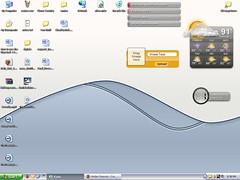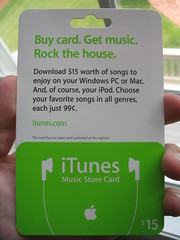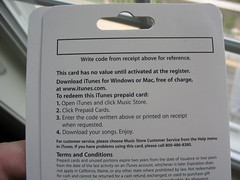Thanks to Dave, who tuned the podcast idea into more focused form.
Each episode of the show will focus on one topic. The idea is to show off a number of perspectives on an area. Sometimes they’ll match up, other times they’ll be opposed.
Ideally, I’d like to keep a chunk of contributions, ready to mold into a show whenever one pile reaches critical mass. So please feel free to contribute to any or all of these topics for the first four themed shows:
-Beginning librarians – As a beginning librarian myself, I’d love to hear from others outside my University in the same position or just a few years into the field. Talk up your perspective! What do you think you bring to the job? How has grad school treated you? Any worries for the profession? Go in any direction you wish.
-Online publishing for libraries (Wikis, Blogs, RSS, Podcasting, etc) – Do you use any online publishing system in your library? Maintain a library-related system outside of work? What’s the setup like? What has patron/student/user reaction been? How would you like to see it used? I know there’s a bunch of resources on this topic already, so I threw it in as one I hope will draw up submissions fast.
-Google – A bad thing for libraries? Good thing? Somewhere in the middle? Google Print and Google Scholar in particular are hot button topics.
-Video games in libraries – I’ve seen strong opinions on this issue. Do they have a place in libraries? If so, which ones should be on the shelf? Got real life experience?
and:
-Grab bag – While I’d prefer clips on the topics above for practical reasons, feel free to submit on any not mentioned here. An occasional random show could be fun, but I didn’t want to splinter contributions too much at the start.
And you don’t have to be a librarian to submit. Work in a library? Use a library? Your thoughts are valuable too.
Please try to keep submissions to at or less than five minutes. I’m scaling back my ambition at first, aiming for three contributors plus framing comments from myself. About 20 minutes total.
On to new business: The ‘cast needs a name. Best I’ve come up with so far is “Voice of Libraries”, trying to play off the Voice of America name, but it seems too clunky and unoriginal. Maybe “Radio Free Library”? Rescue me from blah names.
Again, send submissions to Haefele@Gmail.com. Also, please let me know if you’re planning on contributing.



